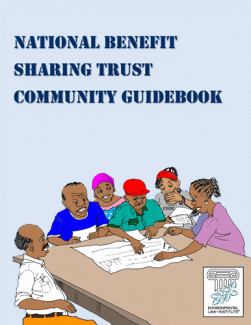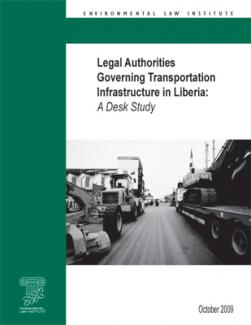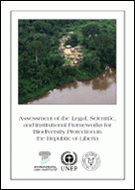Strategic Options for Adapting Biodiversity Management to Climate Change

This is the English version of this report. It is also available in:
ELI Research Brief #7 - The Greening of Warfare: Developing International Law and Institutions to Limit Environmental Damage During Armed Conflict
Out Of Print
Addressing excessive environmental damage from armed conflict has always been problematic. Jay Austin and Carl Bruch, who served as principal organizers of the First International Conference on Addressing Environmental Consequences of War, draw on the meeting`s findings to sketch out an array of possible legal solutions.
Prior Informed Consent and Mining: Promoting Sustainable Development of Local Communities

While nations and multinational corporations profit from mining operations around the world, local communities face the resulting negative impacts. Mining communities have begun to exercise their right to prior informed consent to mining operations, despite skepticism in the international community and business world. However, in December 2003, the World Bank’s Extractive Industries Review endorsed prior informed consent for its projects and private projects.
Practical Approaches to Implementing Environmental Laws: Report of an International Roundtable Discussion
The implementation of endangered species protection policies has focused, especially in recent years, on the threats posed by various land use practices. Less studied, but nevertheless important, are the wide ranging effects of pollution on endangered species and critical habitat. The harmful effects of pollution have contributed to the listing of numerous species under the Endangered Species Act (ESA).
National Benefit Sharing Trust Community Guidebook

ELI has published a guidebook designed to help communities in Liberia develop and implement projects using funds from the National Benefit-Sharing Trust, an entity created by Liberia’s National Forestry Reform Law (NFRL) of 2006. Under the Trust, revenues from the country’s forest sector may be used to help communities develop according to their own priorities. The Trust collects a share of funds from the land rental fees that timber companies must pay the government and sets them aside for communities who are affected by commercial forestry activities.
Legal and Policy Tools to Adapt Biodiversity Management to Climate Change

This is the English language version of the Resource Manual. The Manual is also available in:
Legal Authorities Governing Transportation Infrastructure in Liberia: A Desk Study

This desk study identifies and describes key Liberian legal and regulatory requirements related to the construction of a trans-Liberian railroad and a port facility. The Environmental Law Institute identified potential requirements for the construction of a rail line assuming either the use of existing rail track or a new line parallel to the existing line, with the possibility of the line running in or near the Nimba Mountains.
Assessment of the Legal, Scientific, and Institutional Frameworks for Biodiversity Protection in the Republic of Liberia

This report was coauthored by ELI and the University of Oxford’s Department of Plant Sciences, with support from, and in collaboration with, the United Nations Environment Programme’s Post-Conflict and Disaster Management Branch. It undertakes a detailed analysis of the current laws, regulations, institutions, and practices affecting the management and conservation of biodiversity in Liberia. Based on its research findings, the report highlights priority actions to improve Liberia’s governance of biodiversity.